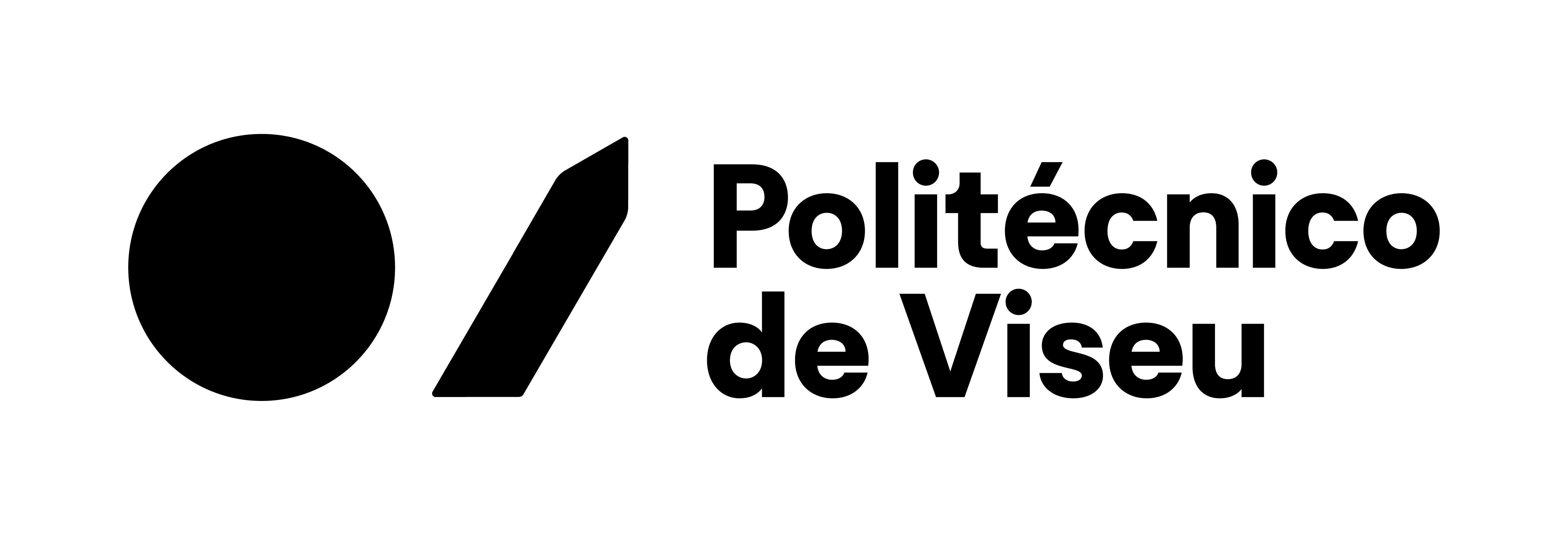
The creation of the Polytechnic Institute of Viseu (IPV), on 26th December 1979, is clearly framed bythe broader philosophy which supported the successful implementation of public polytechnic highereducation in Portugal: the cooperation with the surrounding community, on a reciprocal basis, aimedat promoting awareness of regional problems and the implementation of good solutions. The IPVstrives to fulfill that ambition with the technical, humanistic and personal training of its students, inorder to make them capable of contributing to the development of the Portuguese society; the development of research activities, having in mind the needs of the surrounding context; and culturalexchange and cooperation with other state/private institutions, at the national and international levels.The Institute comprises five schools: Education, Technology and Management, Agriculture,Technology and Management (in the city of Lamego), and Health.The IPV mission is to train professionals with high technical-scientific knowledge and skills andpromote innovation made possible by a close contact between the training institutions and theregional scientific and technological community in the context of an increasingly globalized andinternational society.
Currently, the Polytechnic Institute of Viseu has 5000 students attending bachelor’s degrees,
master’s degrees, post-graduate courses and higher technical professional courses. The training isassured by the 413 members of the academic staff. The offer includes fields such as teachereducation, social work, socioeducative intervention, gerontology, media studies, cultural studies,social service, sports, multimedia, engineering (in many areas), management, marketing, tourism,agrarian sciences and nursing.IPV has a specialized unit on interface with the community, the ADIV – Association for Developmentand Research. This unit establishes close contacts and exchanges with enterprises and the industry,for regional development, and promotes entrepreneurial skills within the academia.The IPV’s research center is the Center for Studies in Education and Innovation (CI&DEI), whosemission is to develop research in education, through research and socio-educational interventionprojects developed by the Polytechnic Institute of Viseu (IPV), the Polytechnic Institute of Guarda(IPG), the Polytechnic Institute of Leiria (IPL), the Polytechnic Institute of Bragança (IPB) and thePolytechnic Institute of Viana do Castelo (IPVC), in an integrated view of collaboration betweenhigher education institutions.In pursuit of its mission, CI&DEI encourages interdisciplinary network research activities in order todevelop the integrated cooperation of its researchers, establish an interface of knowledge andtechnology transference, promote science and culture, as well as the provision of services to the community. In 2018, the CI&DEI team of researchers consisted of 92 members.
The Center hasmanaged projects under the National Foundation for Science and Technology, the regionalMaisCentro program, and the national COMPETE – Operational Competitiveness FactorProgram and Operational Territorial Enhancement Thematic Program, as well as Europeanprojects.
The IPV, through its School of Education, has over 30 years experience in Teacher Education – atgraduate and postgraduate level – in close connection with the regional community. There isknowledge, know-how and vast and diverse experience in developing, implementing and evaluatingtraining for teachers, trainers, practitioners and children. This extensive experience has led to severalpartnerships with local, national and international institutions. This has led to partnerships like“Escola e Famíliaemformaçãoação” a project from one of the main School Groups of the city thatpromotes the participation of parents and families in the school life and students learning trajectories.The IPV is one of the main partners of this successful project that has been distinguished with a ES+,a distinction for Innovation and Entrepreneurship in Portugal. The connection with schools and othereducational partners is also the focus of several research projects. Together with Viseu Municipality,
the School of Education is implementing DãoPetiz and Academia do Linho, non formal educationalprojects that involved children from the municipality learning about the wine and the linen cyclesusing ICT in the places of production and transformation of those products. The School of Educationis also part of Creative Communities for Social Inclusion with the InCode 2030 Initiative of thePortuguese government focused on Digital Inclusion. Many initiatives involve students, parents,teaching and non-teaching staff and different members of the community as active participants, alsoin the evaluation of the projects. There is, therefore, expertise and experience with participatoryevaluation and assessment.
On a national level, several members of the academic staff collaborate with the National SchoolInspection as experts in the External School Evaluation Program. Through this, the School ofEducation has a thorough and deep knowledge of school evaluation, including self-evaluation. Part ofthis has been expanded through participation in the Distributed Evaluation and Planning in Schools(DEAPS), an Erasmus + KA2 partnership with Ireland, Turkey and Belgium about students andparents’ voice in school self-evaluation.
IPV also has operational and financial experience and services to support the management of theproject.Associate Professor Maria Figueiredo holds a PhD in Education, and a Masters Degree inEducational Projects. She works primarily in Early Childhood Teacher Education and SocialWork/Pedagogy. She has researched participatory pedagogies in Early Childhood Education with astrong focus on Children’s Rights and family involvement. She is involved in the DistributedEvaluation and Planning in Schools (DEAPS) project since 2017. Currently, she is Secretary Generalof the European Educational Research Association (EERA) and Vice-President of the PortugueseSociety for Educational Sciences.
Associate Professor João Rocha holds a PhD in Education, specialization in Supervision and Evaluation and a Master’s Degree in Administration and Planning of Education. Works and researches in teacher education. He is an External Evaluation Expert with the NationalGeneral Inspection of Education and Science (IGEC).
Associate Professor Henrique Ramalho has a PhD in Education, specialization in Administration andSchool Organization and a Masters in Educational Sciences, specializing in Sociology and Educational Policies Education. Has research in the field of teacher education, organizational studiesof the school and evaluation of teachers. He is an External Evaluation Expert with the NationalGeneral Inspection of Education and Science (IGEC). Participated in the European project WBEE -Web Based e-inspection and e-performance (2012).
Coordinator Professor Belmiro Rego has a PhD in Educational Sciences, a Masters in Educational Technology and a Masters in Language Didactics. He works in the areas of Didactics andEducational Technology and Digital Culture. He develops and supervises research in these areas and participates in projects in the area of programming and robotics with children. He works as an expert for the Higher Education Evaluation Agency (A3ES). He has participated in several international projects.
Coordinator Professor Ana Paula Cardoso holds the Aggregation, PhD and Master Degree in Educational Sciences by the Coimbra University. She was Coordinator of the research group “Education and Social Development” of CI&DETS Research Centre of the IPV, between 2007-2017,and Scientific Coordinator since December 2017. The predominant area of scientific activity isfocused on the Educational Sciences, with emphasis on the study of pedagogical innovation.
